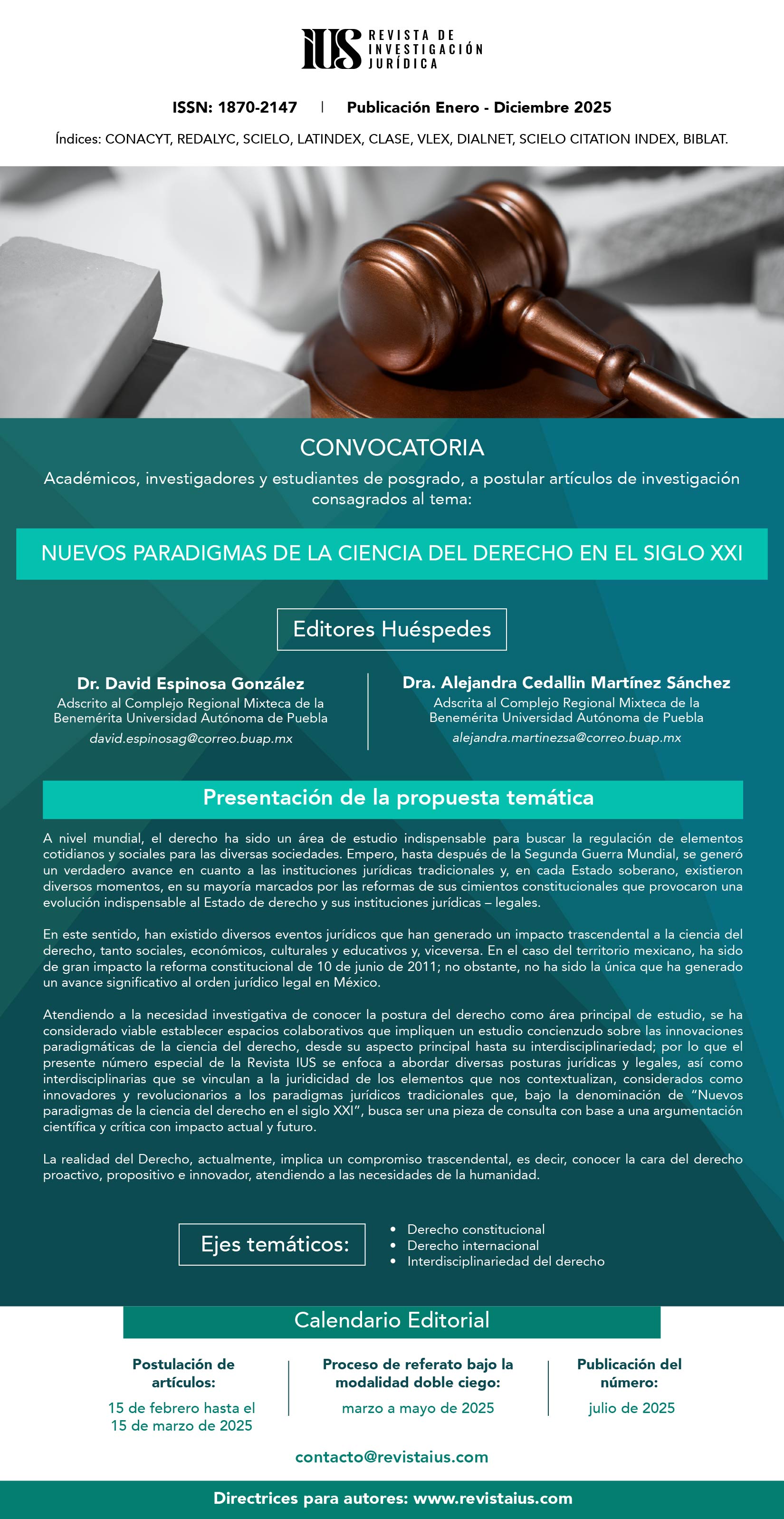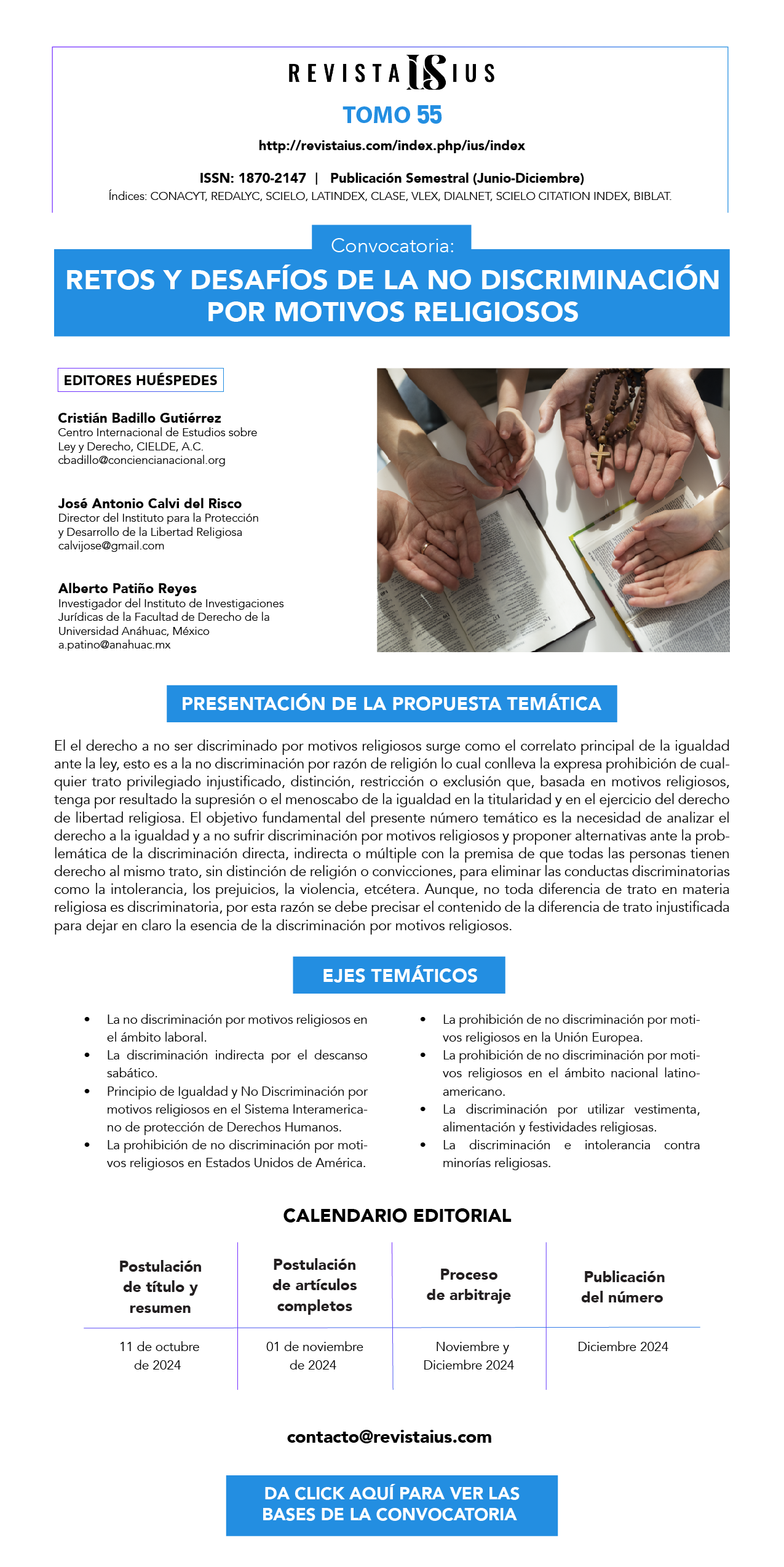El voto nulo y las instituciones electorales en México
DOI:
https://doi.org/10.35487/rius.v4i25.2010.226Resumen
La democracia electoral es, en el panorama político mexicano, el único canal de comunicación ciudadana. Se le sigue apostando a esa vía y sin embargo se requeriría aperturar mecanismos alternos de discusión, puesto que votar es por sí mismo un acto rígido y no sirve como canal único y/o preponderante de expresión ciudadana, toda vez que ésta se ha hecho más compleja. El riesgo es debilitar lo que ha costado mucho esfuerzo. En esta crónica el autor establece consideraciones sobre el panorama político-democrático del México de hoy.
Descargas
Citas
Alonso, J. (2010), “El movimiento anulista en 2009 y la abstención. Los signos de las elecciones de los primeros años del siglo xxi en México”, Espiral, xvi (47).
Benoit, K. et al. (2006), “Voter Strategies with Restricted Choice Menus”, British Journal of Political Science, 36.
Bourdieu, P. (1999), Lenguaje y poder simbólico. ¿Qué significa hablar? Economía de los intercambios lingüisticos, Madrid, Akal Ediciones.
Cornelius, W. (2002), “La eficacia de la compra y coacción del voto en las elecciones mexicanas de 2000”, Perfiles Latinoamericanos (20).
Douglas, M. (1986), ¿Cómo piensan las instituciones?, Madrid, Alianza Editorial.
Fennema, M. y J. T. (2005), “Civil Communities and Multicultural Democracy”, en Rossteutscher, S. (ed.), Democracy and the Role of Associations, Nueva York, Routledge-ecpr Studies in European Political
Science.
Foucault, M. (1975/2008), Vigilar y castigar, nacimiento de la prisión, México, Siglo xxi Editores.
González Casanova, P. (1967/2004), La democracia en México, México, Ediciones Era.
Hernández Avendaño, J. L. (2009), La configuración del voto negativo en una democracia emergente: las campañas presidenciales mexicanas de 2000 y 2006, Toluca, uaem-ieem, vol. 10.
Kostadinova, T. y Power, T. J. (2007), “Does Democratization Depress Participation?: Voter Turnout in the Latin American and Eastern European Transitional Democracies”, Political Research Quarterly, 60 (3).
Lutz, B. (2005), “La participación electoral inconclusa: abstencionismo y votación nula en México”, Revista Mexicana de Sociología, 67 (4).
March, J. G. y Olsen, J. P. (1984), “The New Institutionalism:
Organizational Factors in Political Life”, The American Political
Science Review, 78 (3).
______ y Olsen, J. P. (2006), “Elaborating the ‘New Institutionalism’”, The Oxford Handbook of Political Institutions, Oxford, Oxford University Press.
Mény, Y. (1996), “Las políticas del mimetismo institucional”, Gestión y Política Pública, v (1).
Michels, R. (1962/2003), Los partidos políticos, Buenos Aires, Amorrortu.
Millán, R. (2008), Complejidad social y nuevo orden en la sociedad mexicana, México, M. A. Porrúa, unam-iis.
Moreno, A. (2003), El votante mexicano, democracia, actitudes políticas y conducta electoral, México, Fondo de Cultura Económica.
Negretto, G. L. (2009), “La reforma electoral en América Latina: entre el interés partidario y las demandas ciudadanas”, en Fontaine, Arturo (eds.), Reforma del sistema electoral chileno, Santiago de Chile, pnud, cep, Libertad y Desarrollo, Proyectamérica y Cieplan.
North, D. (1993), Instituciones, cambio institucional y desempeño económico, trad. de A. Bárcena, México, Fondo de Cultura Económica.
Power, T. J., y Roberts, J. T. (1995), “Compulsory Voting, Invalid Ballots, and Abstention in Brazil”, Political Research Quarterly, 48 (4).
Putnam, R. D. (1994), Haciendo que la democracia funcione, trad. de S. Lichao, Caracas, Editorial Galac.
Schedler, A. y Manríquez, L. (2004), “«El voto es nuestro». Cómo los ciudadanos mexicanos perciben el clientelismo electoral”, Revista Mexicana de Sociología, 66 (1).
Warrent, M. E. (2001), Democracy and Association, Princeton, Princeton University Press.
Número
Sección
Licencia
Revista IUS por el Centro Internacional de Estudios sobre Ley y Derecho. se distribuye bajo una Licencia Creative Commons Atribución-NoComercial-CompartirIgual 4.0 Internacional.
Autorizamos a sus colaboradores a que suban una copia de sus trabajos publicados en sus webs personales o en cualquier repositorio de acceso abierto, siempre y cuando se mencione específicamente a la Revista IUS como fuente original de procedencia, citando el año y número del ejemplar respectivo y añadiendo el enlace a la página web donde este órgano editorial puede ser consultado in toto, de manera abierta y gratuita en: http://www.revistaius.com
Las y los lectores tienen libertad para:
Compartir, copiar y redistribuir el material en cualquier medio o formato.
El licenciante no puede revocar estas libertades en tanto usted siga los términos de la licencia.
De acuerdo con los siguientes términos:
Atribución: El lector debe reconocer el crédito de una obra de manera adecuada, proporcionar un enlace a la licencia, e indicar si se han realizado cambios. Puede hacerlo en cualquier forma razonable, pero no de forma tal que sugiera que tiene el apoyo del licenciante o lo recibe por el uso que hace.
No comercial: El lector no puede hacer uso del material con fines comerciales.
Si remezcla, transforma o crea a partir del material, deberá difundir sus contribuciones bajo la misma licencia que el original.
Cargos por gestión de artículos
Revista IUS no cobra tarifas por recibir, procesar o publicar los artículos (Article Processing Charge [APC]) enviados por los autores.





